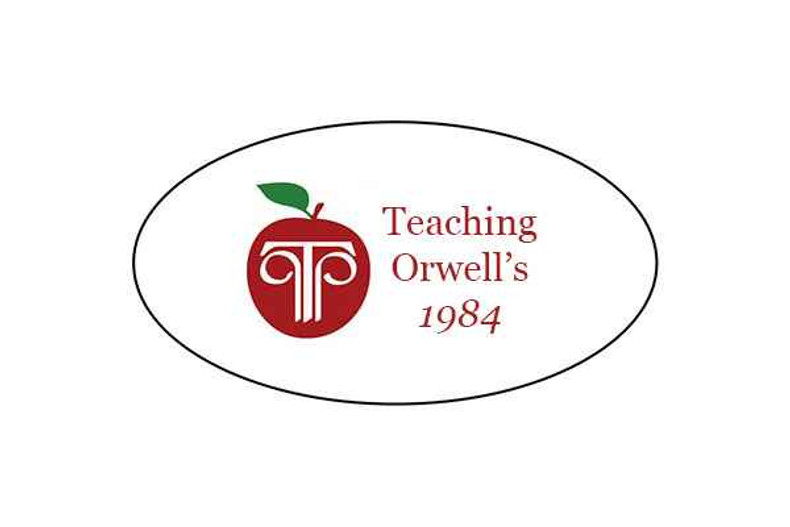Overview Commentary On 1984
The publisher's summary for the book 1984 by George Orwell says, "Orwell depicts a gray world dominated by Big Brother and its vast network of agents, including the Thought Police, quashing freedom in a totalitarian world in which news is manufactured according to the authorities' will and people live tepid lives by rote."
This thought-provoking book is suitable for most high school students. Although it is rather dark in nature, a lot of good discussions and thoughtful essays or comments can be generated by its contents.
The hero of the book, Winston Smith, isn't really a hero at all; he's just an average guy who wants more than the mere existence he is living. However, wanting or thinking anything other than what the authorities have deemed acceptable is grounds for a good brainwashing or being put to death.
Some Things Your Students Should Know About 1984
Being able to define totalitarianism is key to understanding Orwell's 1984. Under totalitarianism, the State controls everything--every aspect of every person's life. Everyone must think and do exactly what the State has decided is appropriate.
Students should understand the role of the Thought Police. Having thoughts other than those approved by the State is dangerous. Voicing those thoughts is extremely dangerous.
The idea that Big Brother Is Watching You is one of the most well-known aspects of the book, which is alluded to in many other works. After reading 1984, students should be able to understand this allusion when it comes up in the future.
The language of the society in 1984 is topsy-turvy. Words don't mean what they say, nor do they say what they mean. The slogans of the Party (Freedom Is Slavery; Ignorance Is Strength; War Is Peace) are great examples of this. Students should understand the concept of Newspeak.
1984 is the expression of Orwell's fears based on his experiences in Spain, Germany, and Russia in the 1940s. He could see the coming consequences of a too-powerful State, a totalitarian regime. This book is his warning for free people to be on the lookout for the early signs of totalitarianism--and to reject it. A good activity would be to do an Internet Quest together as a class to see how much students can find out about George Orwell and how his life experiences contributed to this work.
A Brief Biography Of George Orwell
ORWELL, George (1903-1950) George Orwell’s real name was Eric Arthur Blair. He was born in 1903 in Motihari, Bengal, India. His father worked in India for the British government. In 1904 Orwell and his mother and sister moved to England. He lived there until 1922. Orwell began writing when he was about five years old. His first poem was published when he was eleven years old. Some of his writings were published in college magazines.
From 1922-1927 he worked in Burma as an administrator for the Indian Imperial Police. However, he disapproved of the way the British government was running things, so he resigned. He moved to Paris, and then to London. In 1928 he began writing professionally with some degree of success.
In 1933 he began using the pen name “George Orwell.” In 1933 he wrote about his experiences in Paris and London in a book called Down and Out in Paris and London .At the same time, Orwell taught at a private school in Middlesex, England. In 1934 his second book, Burmese Days, was published. He was teaching at a private school at the same time. During this time he contracted pneumonia, which recurred frequently for the rest of his life.
Orwell married in 1936. Soon after that he went to Spain to write newspaper articles during the Spanish Civil War. Orwell supported the cause of the United Workers Marxist Party and fought with them. His experiences in Spain convinced him that he was opposed to communism and in favor of English socialism.
Orwell was a sergeant in the Home Guard in England during World War II. He was also a broadcast journalist for the British Broadcasting Company (BBC). He disagreed with much of the information from England that he was supposed to broadcast to India and Southeast Asia. He left the job, and from 1943 until 1945 he was the literary editor for the Observer and Tribune. He published Animal Farm in 1944. His wife died shortly before the publication.
In 1949 he published 1984, which was highly successful. He married again in 1949, but died of tuberculosis in 1950.
Animal Farm and 1984 are considered two of the most important literary works of the twentieth century.
Ideas For Discussion Relating To 1984
1. Are there any signs of the beginning of totalitarianism in our country today? Do we have anything like Newspeak? Do we have anything that's like Big Brother? Thoughtcrime?
2. What is freedom? How does a free society maintain the balance between total freedom and totalitarianism?
3. What societies have become totalitarian regimes? How did that happen? Look at the history in specific cases. Could anything have been to prevent the slide into totalitarianism?
Teaching Resources For 1984




